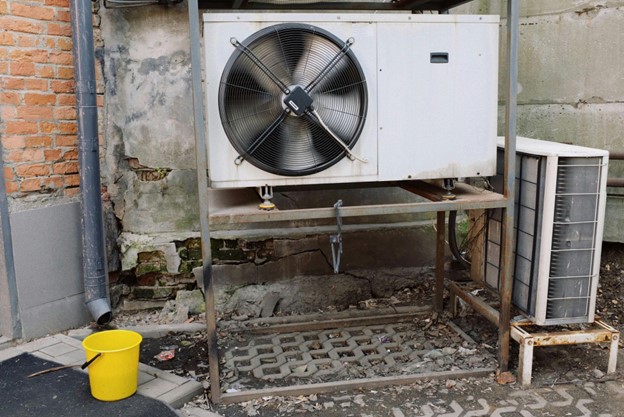A heating, ventilation, and air-conditioning system helps maintain excellent indoor air quality through sufficient ventilation with filtration while providing thermal comfort. A fully functional heating and cooling system ensures heat, dust, and smoke don’t pollute your home’s indoor air. HVAC systems, even with proper maintenance, can develop issues over time.
While some problems can be resolved or delayed via repairs or routine maintenance, others call for replacing the entire heating and cooling unit. Discussed below are four signs to replace your HVAC system.
1. Your HVAC system has outlived the average life expectancy
HVAC systems are designed to last between 15 to 20 years on average, based on the type and other contributing elements, including:
- Improper installation methods
- Poor maintenance practices
- Undersizing or oversizing your system
- Improper usage and more
An old HVAC system is inefficient, which results in accelerated energy consumption. Worn-out parts force your unit to overwork to attain the desired temperature. The additional strain leads to heightened energy costs that hurt your budget. Your home also won’t be adequately cooled or heated.
If your HVAC system has outlived its expected lifespan, contact an HVAC Service and Installation Company to get a new system installed in your home. Replacing your heating and cooling system reduces utility bills and boosts comfort.
2. More frequent heating and cooling system breakdowns or costly repairs
Regular HVAC breakdowns and rising repair expenses are clear signs that the unit is getting close to the end of its operational lifespan. Lack of preventive and regular maintenance is the primary cause of routine heating and cooling system breakdowns and repairs, which can be quite expensive over time. Your system’s old age could be another reason for its frequent breakdowns.
While other issues like a malfunctioning thermostat and blower motor problems can lead to more frequent HVAC system breakdowns or high repair costs, they don’t necessitate a replacement. If your system’s breakdowns are more regular and the repair expenses are higher than usual, it could be time for a replacement.
3. Unreasonably high utility bills
Unusually high monthly utility bills can be easily ignored. However, they could indicate other underlying issues that need repairs or replacement of the entire HVAC system. Your HVAC unit needs adequate care to function optimally and avoid the risk of working more than needed to maintain comfortable indoor temperatures. Neglecting maintenance accelerates wear and tear, resulting in premature system failure.
If your heating and cooling unit has exceeded its lifespan, it won’t function as efficiently as it should. This means it will work harder to ensure your home’s comfort, leading to increased utility bills. Other issues also contribute to unreasonably high electric bills. Consulting an experienced HVAC professional can help determine whether your system requires repairs or a replacement.
4. Uneven temperatures
While a specific level of uneven temperatures cannot be avoided, their regular recurrence could mean an issue with your HVAC system. Although some causes of uneven temperatures, including air leaks, dirty air filters, and more, can be resolved or prevented through repairs and routine maintenance, others call for the unit’s replacement.
If your system is too big, it may cycle off and on very fast, leading to uneven heating or cooling. A unit too small for your space can also lead to the same issue. Replacing it with an HVAC system that’s ideal for your needs can help address this problem.
Endnote
While some heating and cooling unit issues necessitate repairs, others call for a replacement. Familiarize yourself with the signs so you know when it’s time to replace your HVAC system.
Image by ready made on Pexels

